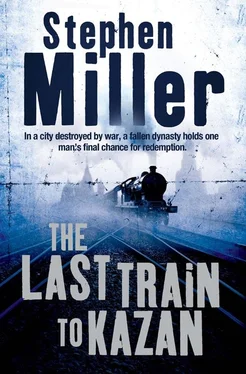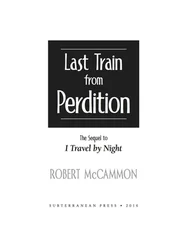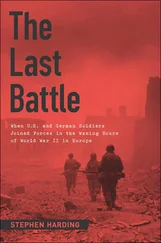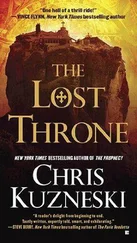He washed his hands and went back to his seat. The papers were in his pocket now. He sat and waited for his friend, nursed his konyak and tried to work out what to do.
They could have him any time, this government. Why now?
Outside men and women walked in the empty park, admiring the straggling gardens, looking at their own reflections in the windows. The old restaurant was not even half full. There was nothing on the menu but soup and eggs. The eggs cost 150 roubles.
Ryzhkov caught the waiter’s eye and asked to use the telephone kiosk. Inside the kiosk he took out the papers and looked for a place to hide them. The seat was made of leather gone ragged and built into the wooden cabinetry. A strip of moulding on the inside rim of the seat was loose and he flattened the papers out on the marble shelf in the kiosk, slipped them beneath the wood and banged it tight with his fist.
There was no answer to his telephone call. He thought about telephoning the embassy, calling Merk to rescue him, but the new government kept records of all calls at the district switchboards, and if they were going to take him it would be soon now…when he left the restaurant.
So he went back to the table. Sat, fuming, for a few more minutes. Angry, letting his nerves out a little. Everything was plausible, so far. But there was nothing, nothing, nothing to grab onto.
Suddenly his anger overwhelmed him. He sat for a moment and broke out into a sweat, his face gone red. Outside, lingering at a lamppost, the man on the tram was given a light for his cigarette by a total stranger. They stopped to exchange a few words and then parted.
He’d waited long enough for his imaginary friend that was never going to come. Abruptly he was standing, shrugging at the waiter, who shrugged back – not an unhappy man. Happy to have work that put him close to a little food now and again, a life indoors under wide ferns and palms that softened the glare through the huge windows. Not a bad job in the middle of a revolution with winter coming, Ryzhkov thought.
A breeze riffled through the leaves from under the awning. He went down the steps. Now he was being a man who suddenly had time on his hands. He walked to the tram stop and waited. There was no point in even looking around now. He knew.
He took the tram as far as the Theatre, then got off and wound his way through the old market, shopping for a few items. It would give them a few more places to check, if they thought he’d dumped the package. Test them. Fight back, he told himself, still angry, frustrated. Blaming himself for never saying no, for thinking that coming back to Russia would mean that he could do something, change something. Find whatever it was he’d lost.
He’d been on the little street a thousand times. It was across and behind the Kremlin from where he’d grown up – his father’s second house on Gazetni Street. They’d moved there to be close to the university where the old man had sometimes worked. Ryzhkov had gone to the Alexander School right in the centre of the city. It was one of the only good times he could remember.
He picked up the tram again, following one long strand of the spider’s web past the Ilynskaya gate and the Church of Transfiguration. Four years of war and revolution had leached the life out of Moscow; the trees had slowly vanished for fuel in the winters, there were no more dogs in the city, they had all been eaten. Money was of dubious value, the prices fluctuating daily; the best way to ‘buy’ something was to barter for it, preferably with food. There was a brisk market in bootleg vodka and schnapps. Men sold it in home-made tins on corners. The Bolsheviks had posted strict proscriptions on alcoholism, but the people had ignored them.
They would take him soon, if they were going to take him at all, and since there was no escape he gave them time to organize. He might as well make it easy. He had no stomach for a fight. At the next stop Ryzhkov got out and walked up the hill behind the Kremlin onto the wide plaza.
Above him loomed St Basil’s, famously named for the saint who was supposedly watching over Moscow and protecting her citizens. Appropriate, he thought. He went inside, admired the frescos and the ikons of the saints. The cathedral was cool in the hot summer day, and Ryzhkov walked into one of the chapels, stood in front of the array of ikons, and, more as a test for himself than anything else, tried to pray.
It didn’t matter that no prayer came. It didn’t matter if he was killed. He’d long since given up worrying about death. Like all the men who’d lived through the trenches he’d only prayed that death might come quickly. A little mercy, that was all.
There was no more time, he thought. He saw a man who had come in behind him and was waiting there, hat in hand. Another was standing just at the outer doors. Both of them were young but looked like they might know what to do. He turned to leave and they followed him out onto the steps.
Below him two carriages had drawn up and four other men were waiting.
‘Bonjour,’ one of the men said. They were laughing and it was too late to run.
From sleep. Dark and vast; adapted for survival so that one part of him was lost in the void, while the other heard the step of the guard in the corridor; the change of the shift, the scratch of a match, the exhale of tobacco. The scattered snap of the gunshots in the courtyard.
He would never have a whole sleep again, Ryzhkov knew. Along with millions of other men, he had adjusted to it. Lying there in a daze, you could at least gain some rest. Besides, if you really slept you might have dreams.
Ryzhkov knew his jail; he had walked past it a hundred times as a young man in Moscow, been into the offices with his father back when it had been the headquarters of the Anchor Assurance and Lloyds of London. Now, it was known by its street address, Bolshaya Lubyanka 11 – newly transformed into the headquarters of the the Extraordinary Commission – the Cheka, the Bolshevik secret police.
It was summer, but the cell was dank. Lit by a window that itself was bisected by a new wall that the revolution had thrown up, red bricks with sharp crusts of mortar that had oozed out of the gaps. Maybe six feet wide and twice as long to the cold outside wall; a thin flea-infested pallet and a bucket.
At first all cells were the same, he thought. And then, once you’d spent enough time fantasizing about escape, or trying to find tiny hiding places to store your pathetic contraband items – a pencil stub, a nail, a fragment of tobacco that had been filched from under the door and saved in hope of a wayward match – you realized that each cell was an individual, like people with their own personalities. There were the impassive ones who’d been wrenched from the soft life and burned down to an austere essence; cruel cells, like people who could watch you die rather than sacrifice a single tear; the cells that kept their dark stories to themselves; cells that couldn’t stop screaming.
It had been three days and he was still in the clothes he had been arrested in; there were no uniforms for the prisoners. You were interrogated, then executed in whatever you were wearing when they picked you up; the last set of clothing you wore became your shroud.
He’d had one long session on the first afternoon. Just questions, no side talk. First one Chekisti, then another and another until there were four. They didn’t bother identifying themselves.
They knew all about him and his attachment to the French intelligence networks once he’d come back to Russia when Kerensky’s Provisional Government granted amnesty to all the politicals. He was openly working at the French embassy and it wasn’t a great leap of detection for them to bring him in.
He sat there handcuffed to his chair and gave them all the obvious answers. One of the men wrote it all down. Testimony. He took his time and was careful. He was a translator, an embassy employee. He wanted to be put in touch with the Ambassador’s office, and he wanted the services of a legal representative. All the time he was answering he was trying to work it out.
Читать дальше












